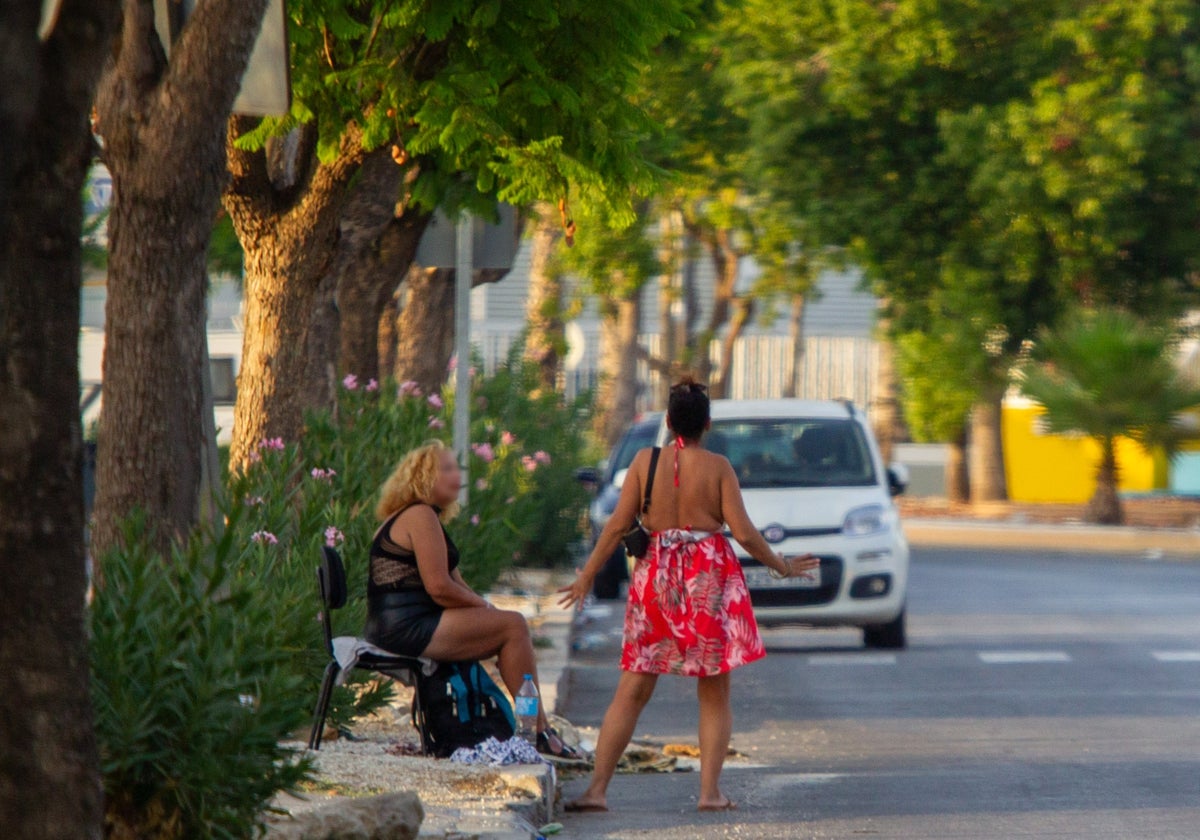Business owners in Malaga's Guadalhorce industrial estate warn of an 'increase in prostitution'
The trade association for the industrial estates of Malaga is calling for more police presence and surveillance to curb this practice that has increased over the last two years
Apoma, the association of industrial estates of Malaga, raised the alarm this Monday about the rise in prostitution in the Guadalhorce industrial estate. Apoma describes it as "a worrying upturn" that "has become particularly serious" throughout this year, spreading to main streets such as Concepción Arenal and the area around the train station and the recycling centre. Apoma released some images taken last Saturday showing several women touting for business in this area, an industrial estate with more than 1,500 businesses.
The association representing these businesses demands a greater police presence in the area from both Local and National Police. "The National Police only act in cases involving foreigners, the Local Police only act if they detect a pimp present. Currently, a patrol passes by only once a day and this makes it impossible to stop this problem," states Ana López Caparrós, Apoma president.
Inactive video surveillance
Both the business owners on this industrial estate and Apoma are demanding the creation of a dedicated police headquarters or coordination unit for the various industrial estates in the area, an increase in plainclothes officers and "operations against prostitution and trafficking."
They also demand improved video surveillance, criticising the inactive, municipal cctv system that was "installed years ago and which has never been operational."
"The cameras, the result of a lengthy process of negotiation, must be optimised and used effectively. We have been informed that the video surveillance plan will be reactivated and updated, an essential tool as a deterrent, not only against prostitution, but also against flytipping and antisocial behaviour," says Ana López.
Apoma also reminds us that one of Malaga's municipal by-laws - the ordinance ensuring citizen coexistence and the protection of urban spaces - expressly prohibits prostitution on public roads within 200 metres of "schools, educational centres, playgrounds, residential areas or places with commercial or business activity". Apoma further points out, "The ordinance sets out sanctions both for those who engage in prostitution and for those who use these services, making it clear that the focus of the regulation does not fall solely on those who engage in it."


Comentar es una ventaja exclusiva para registrados
¿Ya eres registrado?
Inicia sesiónNecesitas ser suscriptor para poder responder.
Necesitas ser suscriptor para poder votar.